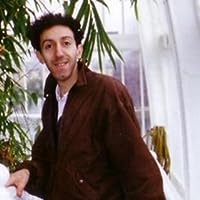Parks Quotes
Quotes tagged as "parks"
Showing 1-30 of 37

“Do not fall in love with people like me.
I will take you to museums, and parks, and monuments, and kiss you in every beautiful place, so that you can never go back to them without tasting me like blood in your mouth.
I will destroy you in the most beautiful way possible. And when I leave you will finally understand, why storms are named after people.”
― Literary Sexts: A Collection of Short & Sexy Love Poems
I will take you to museums, and parks, and monuments, and kiss you in every beautiful place, so that you can never go back to them without tasting me like blood in your mouth.
I will destroy you in the most beautiful way possible. And when I leave you will finally understand, why storms are named after people.”
― Literary Sexts: A Collection of Short & Sexy Love Poems

“The nation behaves well if it treats its natural resources as assets which it must turn over to the next generation increased, and not impaired, in value.”
―
―

“You can neither lie to a neighbourhood park, nor reason with it. 'Artist's conceptions' and persuasive renderings can put pictures of life into proposed neighbourhood parks or park malls, and verbal rationalizations can conjure up users who ought to appreciate them, but in real life only diverse surroundings have the practical power of inducing a natural, continuing flow of life and use.”
― The Death and Life of Great American Cities
― The Death and Life of Great American Cities

“There is nothing so American as our national parks. The scenery and the wildlife are native. The fundamental idea behind the parks is native. It is, in brief, that the country belongs to the people, that it is in process of making for the enrichment of the lives of all of us. The parks stand as the outward symbal of the great human principle.”
―
―

“The more successfully a city mingles everyday diversity of uses and users in its everyday streets, the more successfully, casually (and economically) its people thereby enliven and support well-located parks that can thus give back grace and delight to their neighborhoods instead of vacuity. ”
― The Death and Life of Great American Cities
― The Death and Life of Great American Cities

“One may lack words to express the impact of beauty but no one who has felt it remains untouched. It is renewal, enlargement, intensification. The parks preserve it permanently in the inheritance of the American citizens.”
―
―

“As Elizabeth Blackmar and Ray Rosenzweig wrote in their magisterial history of [Central Park in NYC]: 'The issue of demoncratic access to the park has also been raised by the increasing number of homeless New Yorkers. Poor people--from the 'squatters' of the 1850s to the 'tramps' of the 1870s and 1890s to the Hooverville residents of the 1930s--have always turned to the park land for shelter...The growing visibility of homeless people in Central Park osed in the starkest terms the contradiction between Americans' commitment to democratic space and their acquiescence in vast disparities of wealth and power.”
― Storming the Gates of Paradise: Landscapes for Politics
― Storming the Gates of Paradise: Landscapes for Politics
“In merging nature and culture the most successful cities combine such universal needs as maintaining or restoring contact with the cycles of nature, with specific, local characteristics.”
― Chicago's Urban Nature: A Guide to the City's Architecture + Landscape
― Chicago's Urban Nature: A Guide to the City's Architecture + Landscape

“Just as dogs were thwarted wolves, parks were thwarted forests. Humans loved both, possibly because humans were, well, thwarted.”
― The Humans
― The Humans
“The Paperbats book. Successful publication release with 30 books downloaded in first day and a half.
"This delightful childrens' book has just been published on smashwords, where it can be read for free! I invite you to enjoy a lovely story with yany young children.”
―
"This delightful childrens' book has just been published on smashwords, where it can be read for free! I invite you to enjoy a lovely story with yany young children.”
―

“There is a big difference between living in a society that hunts whales and living in one that views them. Nature is being reduced to precious demonstrations for entertainment and education, something far less natural than hunting. Are we headed for a world where nothing is left of nature but parks?”
― Cod: A Biography of the Fish that Changed the World
― Cod: A Biography of the Fish that Changed the World

“During my 4th grade year the National Park Service announced an essay contest about the importance of parks. I was inspired by some now forgotten prize to begin writing with this contest. It seemed progress was being made as I declared that "Parks are like old photos" only to be asked to clarify – "How exactly are parks like old photos?" This question created a case of Writer's Block that extended through the essay contest deadline. Lewis Carroll was content with leaving us with "Why is a raven like a writing desk?" but I kept working on my answer. How are parks like old photos? You'll know when they are gone.”
― Some Books Are Not For Sale
― Some Books Are Not For Sale

“I fell for a girl who reminded me of the park benches where I've spent hours writing about love and sadness.”
―
―

“If you have found a quiet bench in a quiet park and sat down, be sure you had a very profitable day!”
―
―

“High altitude astronomical sites are commonly also used as Radio Frequency (RF) radiation antenna parks.”
―
―
“The 150 years old elm trees are blossoming beautifully in the warm and pleasant spring breezes. There are plentiful International tourists roaming to and from, with gleeful facial expressions of satisfied expectations, while in the mist of their expeditions.”
― The Adventures of Central Park NY Cats
― The Adventures of Central Park NY Cats

“It wasn’t only benches, Charlie found, that bore names on them. There were rocks with names, buildings with names, parks with names, streets with names, even tables with names. Charlie thought it was a wildly large ask for a man to expect people to know who he was after he’d left. It’s too hard to compete with the excited men today who want to be remembered tomorrow. But no one could ever live that long. We don’t remember Lincoln every hour, or Jackie Robinson every meal. Charlie supposed the only solace a man could own is knowing he did plenty of good things in the time he had. It was all we got and a noble insufficiency was enough. He also figured if you were going to make a bench, not to inscribe your name on it, but instead something awesome like, “This Bench Was Made with One Hand.” No fool was going to remember your name, for God’s sake. But they might laugh at a spectacle such as a one-handed achievement.”
― The Goodbye Song
― The Goodbye Song

“Stranger's Park by Stewart Stafford
Up the empty, welcoming path,
Half grass/gravel in composition,
Past ruined cottage foundations,
And tree trunk with vaginal cleft.
Swings sway, empty playground,
Birds serenading wraith children,
Roundhead bins stand as sentries,
Keeping errant litter off the grass.
Army truck and wailing ambulance,
Shatter the tranquility as they pass,
Blaring car horn joins the cacophony,
Turning on my heel, I journey home.
© Stewart Stafford, 2022. All rights reserved.”
―
Up the empty, welcoming path,
Half grass/gravel in composition,
Past ruined cottage foundations,
And tree trunk with vaginal cleft.
Swings sway, empty playground,
Birds serenading wraith children,
Roundhead bins stand as sentries,
Keeping errant litter off the grass.
Army truck and wailing ambulance,
Shatter the tranquility as they pass,
Blaring car horn joins the cacophony,
Turning on my heel, I journey home.
© Stewart Stafford, 2022. All rights reserved.”
―
“Journalist Tony Horwitz describes its laser show as an unfortunate mix of Coca-Cola, the Beatles, the Atlanta Braves, and Elvis sining "Dixie," followed by the "Battle Hymn of the Republic." Television ads end with the inclusive slogan, "Stone Mountain: A Different Day for Everyone." Eventually the desire for everyone's dollar may accomplish what the physical elements cannot: eradicating Stone Mountain as a Confederate-KKK Shrine.”
―
―
“Jefferson made no consistent effort to abolish slavery ... It would be nice if Jefferson were the photo-abolitionist that the memorial and the park service brochure pretend he was ... his memorial needs to be more complex than it is ... the National Park Service could supply the contexts missing from the juxtaposed questions on its panels. Then visitors could see Jefferson as a man who not only envisioned but also betrayed the hopes of mankind.”
―
―
“How can we expect affluent white Southerners who control most plantation sites to tell the full and sometimes unsavory truth about their sites when the National Park Service does no better?”
―
―
“Or consider the relative power of the three branches of government ... some political scientists claim that a fourth branch - the CIA, National Security Council, and other covert agencies - has developed in the last thirty years. The Constitution cannot save democracy when officials in the FBI, CIA, State Department, and undercover agencies determine not only our policies but also how much the people, the Congress, and perhaps even the president need to know about them.”
―
―

“For that matter, even if the owners and workers in a historic site had not included a president, most visitors would want to hear about the important events in their lives, not just about their furniture.”
― Lies Across America: What Our Historic Sites Get Wrong
― Lies Across America: What Our Historic Sites Get Wrong
“Parklands are often positioned as apolitical, as “common” or public land that somehow eludes examination amidst the grit of property markets and land-use battles, but it is critical to understand parks as a central feature of colonial land logics, as aggressively regulating and disciplining land and its occupations.”
― On This Patch of Grass: City Parks on Occupied Land
― On This Patch of Grass: City Parks on Occupied Land
“In many discourses, parks are posited as the best of urbanity, as an unmitigated “good” that represents all that cities can and should be. Parks are purportedly natural salves for the disordered immorality and filth of urban life, pools of respite, beauty and virtue. But those complicated and complicating claims make multiple contradictory and dubious arguments for human social and political life that are not easily dislodged or disentangled. Those claims are always bound up with rationalities of whiteness and colonial ordering: parks bring structured comprehensibility and access to the otherwise unruly “wilds,” cleansed of any savage and uncooperative residents, and disallow any activities that do not adhere to certain orders. A huge amount of work is expended on park design to ensure that they adhere exactly to settler colonial re-orderings of occupation.”
― On This Patch of Grass: City Parks on Occupied Land
― On This Patch of Grass: City Parks on Occupied Land
“He [Robert Moses] built parks and playgrounds with a lavish hand, but they were parks and playgrounds for the rich and comfortable...Recreation facilities for the poor he doled out like a miser.”
―
―
All Quotes
|
My Quotes
|
Add A Quote
Browse By Tag
- Love Quotes 98.5k
- Life Quotes 76.5k
- Inspirational Quotes 73.5k
- Humor Quotes 44k
- Philosophy Quotes 30k
- Inspirational Quotes Quotes 27.5k
- God Quotes 26.5k
- Truth Quotes 24k
- Wisdom Quotes 24k
- Romance Quotes 23.5k
- Poetry Quotes 22.5k
- Death Quotes 20k
- Life Lessons Quotes 20k
- Happiness Quotes 19k
- Quotes Quotes 18k
- Faith Quotes 18k
- Hope Quotes 18k
- Inspiration Quotes 17k
- Spirituality Quotes 15k
- Religion Quotes 15k
- Motivational Quotes 15k
- Writing Quotes 15k
- Relationships Quotes 14.5k
- Life Quotes Quotes 14.5k
- Love Quotes Quotes 14.5k
- Success Quotes 13.5k
- Time Quotes 12.5k
- Motivation Quotes 12.5k
- Science Quotes 12k
- Motivational Quotes Quotes 11.5k


